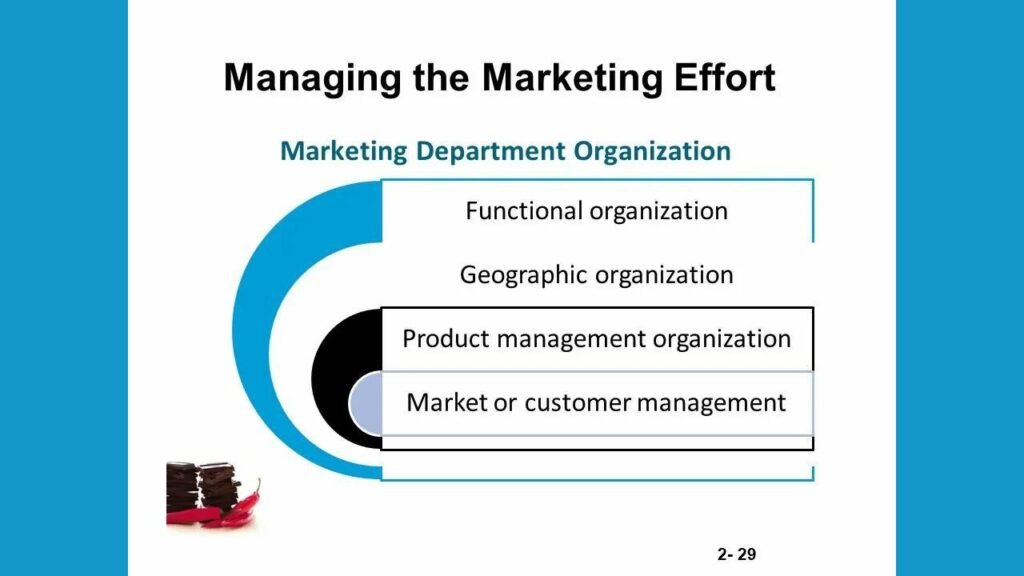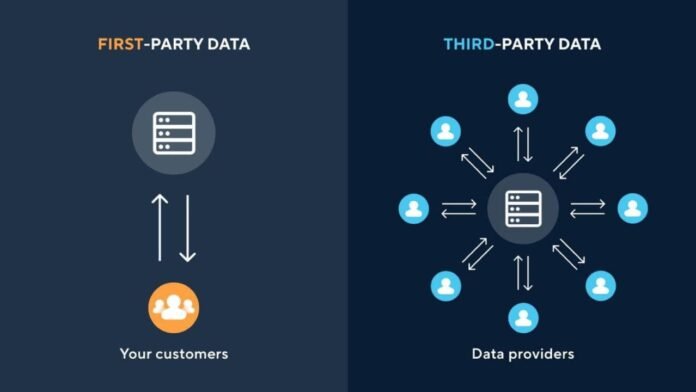What is the Best Benefits of First Party Data in digital marketing, including enhanced personalization, improved targeting, and increased customer trust. It drives customer insights, cost-effectiveness, and regulatory compliance while fostering long-term relationships and providing a competitive advantage in the market.
To First-Party Data
First-party data is a cornerstone of modern marketing strategies, providing invaluable insights into consumer behavior and preferences directly from a company’s interactions. Unlike third-party data sourced from external providers, first-party data is collected firsthand, fostering deeper customer relationships and enabling personalized experiences.
By leveraging data gathered from website visits, email interactions, and social media engagement, businesses can tailor their marketing efforts with precision, driving higher conversion rates and ROI.
With consumer privacy concerns on the rise and increasing regulations, prioritizing first-party data collection and analysis is essential for businesses looking to stay ahead in today’s competitive landscape.
The Power of First-Party Data: The Ultimate Benefits
The Power first-party data stands tall as the cornerstone of success. Its unrivaled potential offers a plethora of benefits that savvy marketers leverage to propel their campaigns to new heights. Let’s delve into the unparalleled advantages that first-party data brings to the table.
First Party Data
First-party data is a cornerstone of effective marketing strategies, comprising information collected directly from customers. Unlike third-party data, it’s reliable, accurate, and GDPR-compliant.
By harnessing insights from interactions and transactions, businesses can personalize experiences, target relevant audiences, and drive engagement. This data offers valuable insights into customer behavior, preferences, and purchasing patterns, enabling brands to tailor their marketing efforts effectively.
With increasing privacy concerns and changes in data regulations, first-party data has become even more critical for businesses seeking to build trust and loyalty with their audience while maintaining compliance.
Embracing first-party data empowers companies to create more personalized and impactful marketing campaigns, driving growth and success.
The Best Benefits of First-Party Data
- Enhanced Personalization: By leveraging first-party data, businesses can create highly personalized marketing campaigns tailored to individual customer preferences. This leads to higher engagement and conversion rates.
- Improved Targeting: With access to detailed customer insights, businesses can target their marketing efforts more effectively, ensuring that their messages resonate with the right audience segments.
- Increased Customer Trust: Customers are more likely to trust brands that use their data responsibly to deliver relevant and valuable experiences. By respecting customer privacy and preferences, businesses can foster trust and loyalty.
Driving Customer Insights
Driving customer insights is imperative for businesses to thrive in competitive markets. By analyzing data from various touchpoints, businesses can uncover valuable information about customer preferences, behaviors, and needs. This knowledge enables personalized marketing strategies, product enhancements, and better customer experiences.
Through techniques such as data mining, surveys, and social media monitoring, businesses can gain a deeper understanding of customer sentiments and trends.
Armed with these insights, companies can make informed decisions, tailor their offerings to meet customer demands, and, ultimately, drive growth and profitability. harnessing customer insights is not just advantageous—it’s essential for staying ahead in the market.
Cost-Effectiveness
Utilizing first-party data can also lead to significant cost savings for businesses. By targeting marketing efforts more precisely, businesses can reduce wasted ad spend and achieve a higher return on investment (ROI).
Regulatory Compliance
In an era of increasing data privacy regulations, such as the General Data Protection Regulation (GDPR) and the California Consumer Privacy Act (CCPA), leveraging first-party data ensures regulatory compliance. By obtaining explicit consent and respecting customer privacy rights, businesses can build trust and avoid costly fines.
Data Security and Privacy
Data security and privacy are paramount concerns in today’s digital age. With cyber threats on the rise, safeguarding sensitive information is crucial for individuals and organizations alike.
Robust security measures, such as encryption and multi-factor authentication, help mitigate risks and ensure data integrity. Compliance with regulations like GDPR and CCPA further reinforces privacy protections and builds trust with users
Implementing comprehensive security protocols, regular audits, and employee training programs are essential steps toward maintaining data integrity and protecting user privacy.
By prioritizing data security and privacy, businesses can safeguard their reputation, foster customer loyalty, and mitigate the costly consequences of data breaches.
Flexibility and Customization
Flexibility and customization are pivotal in today’s dynamic landscape. Businesses must adapt swiftly to market changes and consumer demands. Offering tailored solutions and adaptable services ensures relevance and customer satisfaction.
Flexibility enables businesses to pivot strategies, adjust operations, and seize emerging opportunities effectively. Moreover, customization fosters deeper connections with customers, enhancing loyalty and brand advocacy.
By embracing flexibility and customization, businesses can stay agile, responsive, and competitive in an ever-evolving market. Whether it’s personalized products, flexible payment options, or customizable services, prioritizing adaptability empowers businesses to thrive amidst uncertainty and volatility.
Long-Term Relationships
Long-term relationships are the cornerstone of enduring bonds, whether in personal or professional realms. Cultivating trust, mutual respect, and open communication sustains these connections over time.
Such relationships foster loyalty, understanding, and support, enhancing overall well-being and success. In business, nurturing long-term partnerships with clients, customers, and stakeholders builds a solid foundation for sustained growth and prosperity.
Investing time and effort into maintaining these relationships pays dividends in the form of repeat business, referrals, and collaborative opportunities. Ultimately, prioritizing long-term relationships fosters a sense of belonging, fulfillment, and shared accomplishment, enriching both individuals and organizations alike.
Competitive Advantage
What is the Best Benefits of First Party Data, businesses that harness the power of first-party data gain a significant advantage. By leveraging data-driven insights to inform strategic decision-making, businesses can outmaneuver competitors and stay ahead of the curve.
Integration with Other Marketing Efforts

Integration with other marketing efforts is crucial for maximizing impact and ROI. By aligning digital strategies with traditional marketing channels, businesses create a cohesive brand experience. This synergy enhances brand visibility, fosters customer engagement, and drives conversions across platforms.
Whether it’s incorporating social media campaigns into print advertisements or leveraging email marketing to complement TV commercials, integration ensures a seamless omnichannel approach.
Moreover, synchronized efforts enable data sharing and analysis, facilitating informed decision-making and optimization. interconnected landscape, businesses that embrace integration stand to gain a competitive edge, leveraging the strengths of each channel to achieve overarching marketing objectives efficiently and effectively.
Test of First-Party Data
The Test of First Party Data has emerged as a pivotal tool for businesses. This test involves analyzing and validating the accuracy, relevance, and effectiveness of the data collected directly from customers or users.
By assessing first-party data quality and integrity, organizations can make informed decisions, personalize customer experiences, and optimize marketing strategies.
With privacy concerns and regulatory changes shaping the data landscape, conducting thorough tests ensures compliance and builds trust with consumers.
Leveraging first-party data effectively empowers businesses to unlock valuable insights, drive growth, and stay competitive in an ever-evolving digital ecosystem.
Enhanced Personalization: Crafting Tailored Experiences
First-party data’s heart lies in its ability to fuel hyper-personalized marketing initiatives. By gathering insights directly from your audience, you gain invaluable knowledge about their preferences, behaviors, and interests.
Armed with this treasure trove of information, you can tailor your messaging and offers with surgical precision, ensuring each interaction resonates deeply with individual consumers.
Heightened Engagement: Building Deeper Connections

Heightened engagement is crucial for building deeper connections with audiences. Whether through social media interactions, personalized content, or immersive brand experiences, businesses strive to foster meaningful relationships.
By prioritizing engagement strategies, companies can cultivate loyalty, trust, and advocacy among their target demographics. Utilizing data analytics and customer insights, brands tailor their approach to resonate with individual preferences and behaviors.
This proactive engagement not only drives conversion rates but also strengthens brand affinity and long-term customer relationships.
Heightened engagement serves as the cornerstone for establishing lasting connections and driving sustained business growth in the competitive digital marketplace.
Optimized Campaign Performance: Driving Superior Results
Achieving superior results hinges on campaign optimization. By meticulously fine-tuning strategies, leveraging data analytics, and embracing emerging technologies, marketers can enhance campaign effectiveness.
From refining audience targeting to optimizing ad creatives, each facet plays a crucial role in maximizing performance. Furthermore, continuous monitoring and adaptation ensure campaigns remain agile and responsive to changing market
Through a proactive approach to optimization, marketers can drive superior results, maximize return on investment and achieve strategic objectives. Embracing optimization as a core principle empowers marketers to stay ahead in the competitive digital landscape, delivering impactful outcomes and fostering long-term success.
Data Security and Compliance: Safeguarding Consumer Trust
Data security and compliance are paramount for businesses to uphold consumer trust. With cyber threats on the rise, safeguarding sensitive information is non-negotiable. Implementing robust security measures and adhering to industry regulations not only protects consumers’ data but also bolsters brand credibility.
From encrypting data to conducting regular audits, proactive measures are essential in mitigating risks and ensuring compliance. By prioritizing data security, businesses not only safeguard consumer trust but also mitigate potential damages from breaches.
Upholding stringent security standards not only enhances customer confidence but also sets businesses apart as responsible stewards of sensitive information in an increasingly digital world.
Future-Proofing Your Marketing Strategy: Staying Ahead of the Curve
Future-proofing your marketing strategy is essential for sustained success. By staying ahead of the curve, businesses can anticipate trends, adapt to changes, and maintain a competitive edge.
Embracing emerging technologies, leveraging data analytics, and prioritizing customer-centricity are key strategies for future-proofing. Additionally, fostering agility and innovation within your marketing team ensures adaptability to evolving market demands.
Continuous learning and staying informed about industry developments further reinforce resilience. By proactively adjusting strategies and embracing new opportunities, businesses can navigate uncertainties and thrive in an ever-changing market environment.
Future-proofing your marketing strategy is not just about survival—it’s about thriving in the face of uncertainty.
Harnessing the Power of First-Party Data

What is the Best Benefits of First Party Data, Leveraging first-party data is paramount for businesses to thrive. By harnessing insights directly from their audience, companies can personalize experiences, enhance targeting accuracy, and drive impactful marketing campaigns.
With consumer privacy concerns on the rise, relying on first-party data ensures compliance with regulations while fostering trust and loyalty.
By investing in robust data collection and analysis strategies, organizations can unlock valuable insights, optimize customer interactions, and stay ahead in competitive markets.
Harnessing the power of first-party data isn’t just a trend; it’s a strategic imperative for businesses looking to maximize ROI and build long-term relationships with their audience.
Conclusion:
The benefits of first-party data are undeniable. From enabling personalized experiences to driving tangible business outcomes, its impact reverberates across every facet of modern marketing. By embracing first-party data as the cornerstone of your strategy, you unlock a world of possibilities, propelling your brand toward sustained growth and success.
FAQ
Is First-Party Data a Competitive Advantage?
Individuals seek value for themselves. When executed effectively, this leads to valuable first-party data and a comprehensive grasp of customers, which can strengthen your competitive edge as this knowledge is unique to your business.
What is a First-Party Data Strategy?
First-party data comprises information obtained directly from your customers and audience during their interactions with your business. This data encompasses demographics, purchase history, website activity, interactions, interests, mobile app data, and behaviors, like clicking on emails or reading articles on your website.
Which Data Type is Mostly Used?
A string comprises characters and is the primary data type for storing text. While it can contain digits and symbols, it’s consistently interpreted as text.
Which Method is the Fastest Way to Collect Data?
The quickest method to collect primary data is a telephone survey. A wide range of people can be connected through this method. People are asked questions over the telephone, and data is collected according to their answers.
Which Data Type is Most Characteristic of Big Data?
Big data is typically characterized by the three Vs: volume (the sheer amount of data), Velocity (the speed at which data is generated and processed), and Variety (the diversity of data types and sources).


